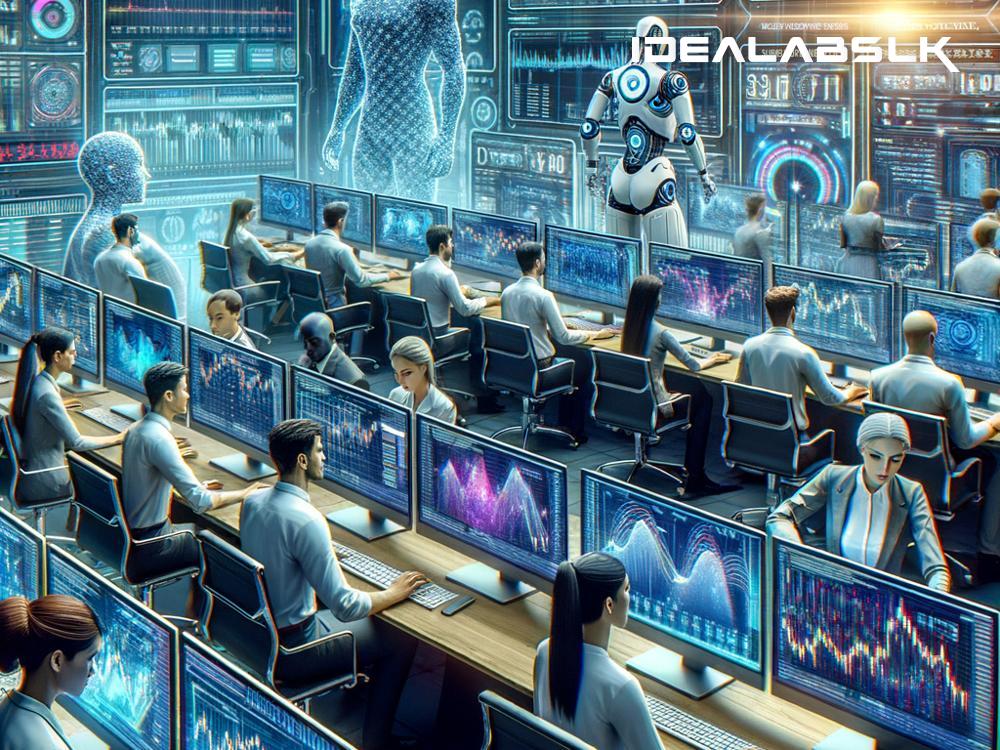AI for Trading: Simplifying Big Data and AI in Trading Decisions
In today's fast-paced world, the stock market is more dynamic than ever, making it a thrilling yet challenging space. For investors and traders seeking to stay ahead of the game, traditional methods alone no longer cut it. This is where Big Data and Artificial Intelligence (AI) come into play, revolutionizing trading decisions in ways we once only dreamed of. Let's break down these complex terms and see how they are changing the landscape of trading.
The Role of Big Data in Trading
Imagine walking into a vast library, where instead of books, the shelves are filled with real-time data on stocks, market trends, economic indicators, and global financial news. This library is constantly updating, every second, with volumes of information. That's Big Data for you! It includes everything that can affect market movements, from tweets about a company's latest product to geopolitical events shaking the global economy.
But here's the catch – this library is too vast for any human to comprehend fully. That's where AI steps in.
The Magic of Artificial Intelligence in Trading
Artificial Intelligence, in simple terms, is like having a super-smart assistant who can read all these countless volumes in the blink of an eye, analyze them, and then make predictions about which stocks will go up or down. This assistant doesn't get tired, isn't swayed by emotions, and operates 24/7, making decisions based on data rather than gut feelings.
How Big Data and AI Come Together
AI uses complex algorithms and machine learning to sift through Big Data, identifying patterns and trends that humans might miss. For instance, it can notice that a particular stock tends to rise after specific types of news reports or when certain financial indicators reach particular values. This blending of Big Data and AI in trading allows for more informed and, potentially, more profitable investment decisions.
Practical Applications in Trading
Traders and investment firms are employing AI-driven tools for a variety of tasks, including:
- Market Prediction: AI algorithms predict market movements by analyzing historical and current data, potentially outperforming traditional analysis.
- Automated Trading: Also known as algorithmic trading, it utilizes AI to buy and sell stocks at optimal times without human intervention, maximizing profits.
- Risk Management: AI tools assess the risk levels of different investments, helping traders to diversify their portfolios wisely.
- Sentiment Analysis: By scanning news articles, social media, and financial reports, AI gauges the market sentiment towards particular stocks or the market as a whole.
The Benefits of Using AI in Trading
Speed and Efficiency: AI systems process and react to market changes faster than any human could, capitalizing on opportunities the moment they arise.
Emotionless Decisions: Markets are often swayed by human emotions. AI makes decisions based on data alone, eliminating emotional bias from trading.
Improved Accuracy: Through continuous learning and adapting, AI can improve its predictions over time, potentially leading to more accurate trading decisions.
Accessibility: With AI tools becoming more available, even individual traders can leverage this technology to compete with larger institutions.
The Challenges
While AI for trading might sound like a silver bullet, it's not without its challenges. These systems can be expensive and require significant computational power. Additionally, AI systems are only as good as the data they're trained on—if the data is biased or flawed, the decisions will be too. Furthermore, the reliance on AI can lead to a lack of human oversight, potentially creating new risks.
Wrapping Up
Big Data and Artificial Intelligence are undoubtedly transforming how trading decisions are made, offering unparalleled speed, efficiency, and accuracy. However, it's crucial to approach this technology with a clear understanding of both its power and its limitations. As we continue to navigate this exciting intersection of technology and finance, one thing is clear: the future of trading will be increasingly driven by the smart integration of human insight and artificial intelligence. Whether you're a seasoned trader or new to the game, embracing this shift could be the key to unlocking new opportunities in the ever-evolving world of trading.

